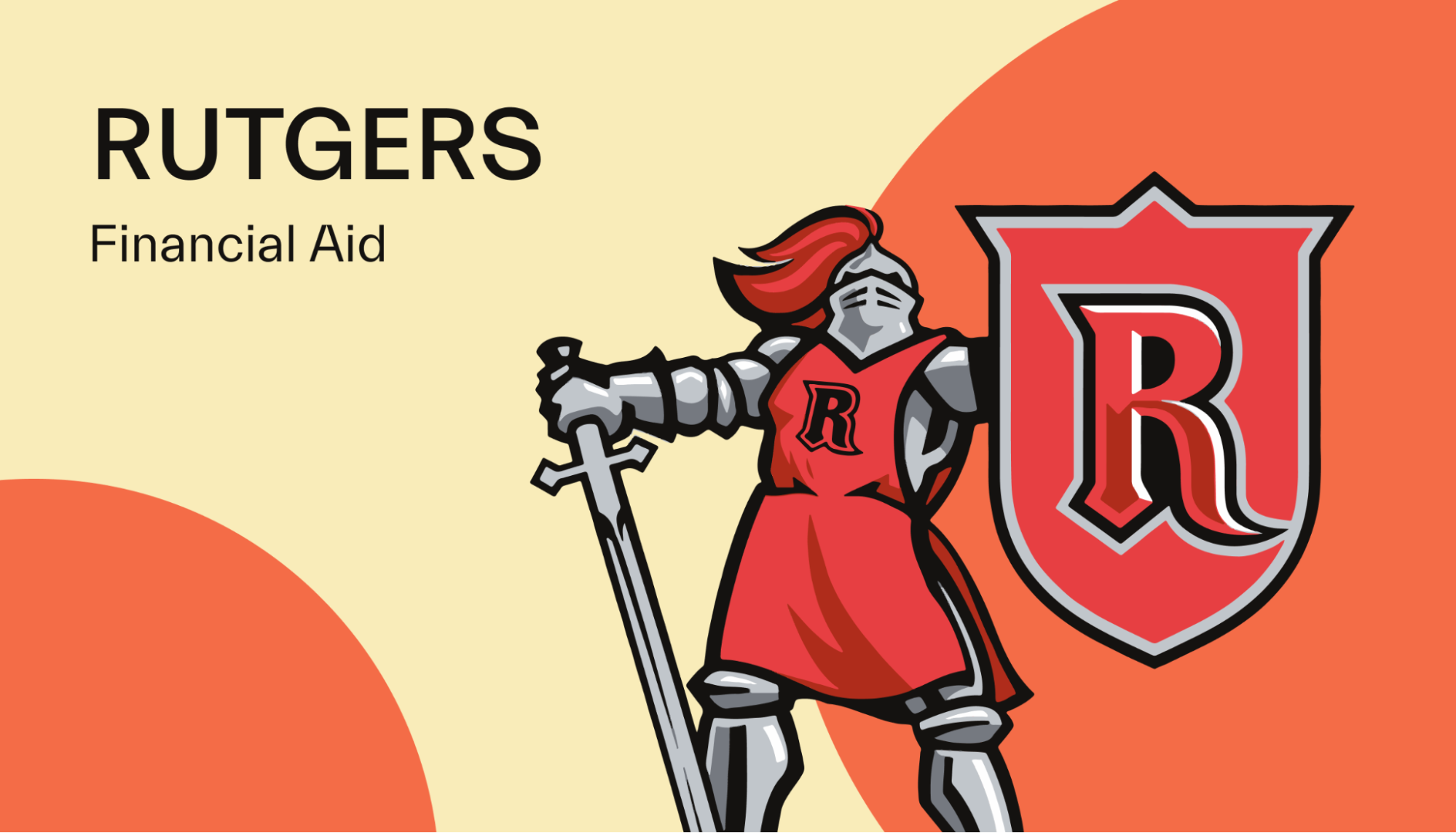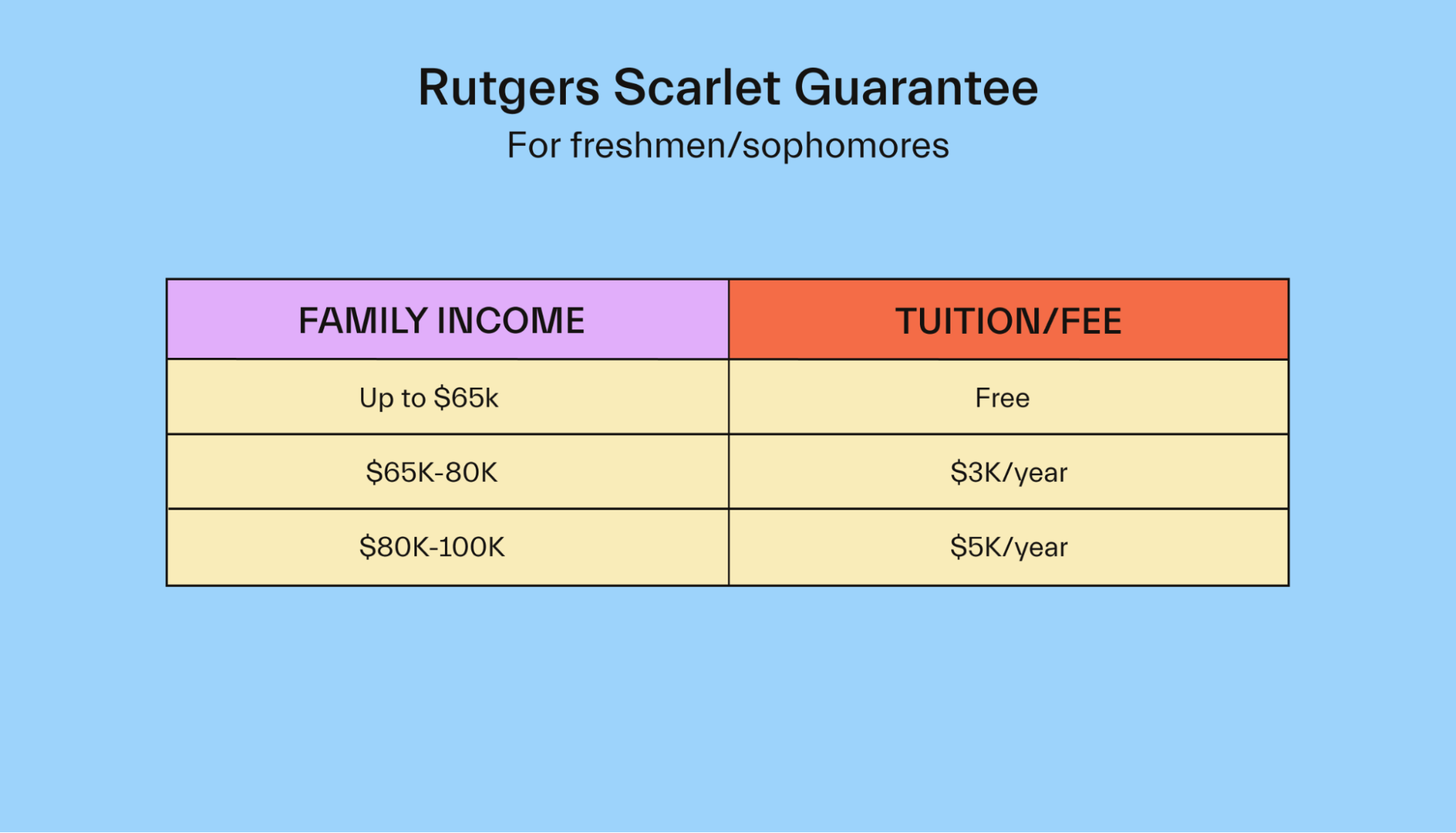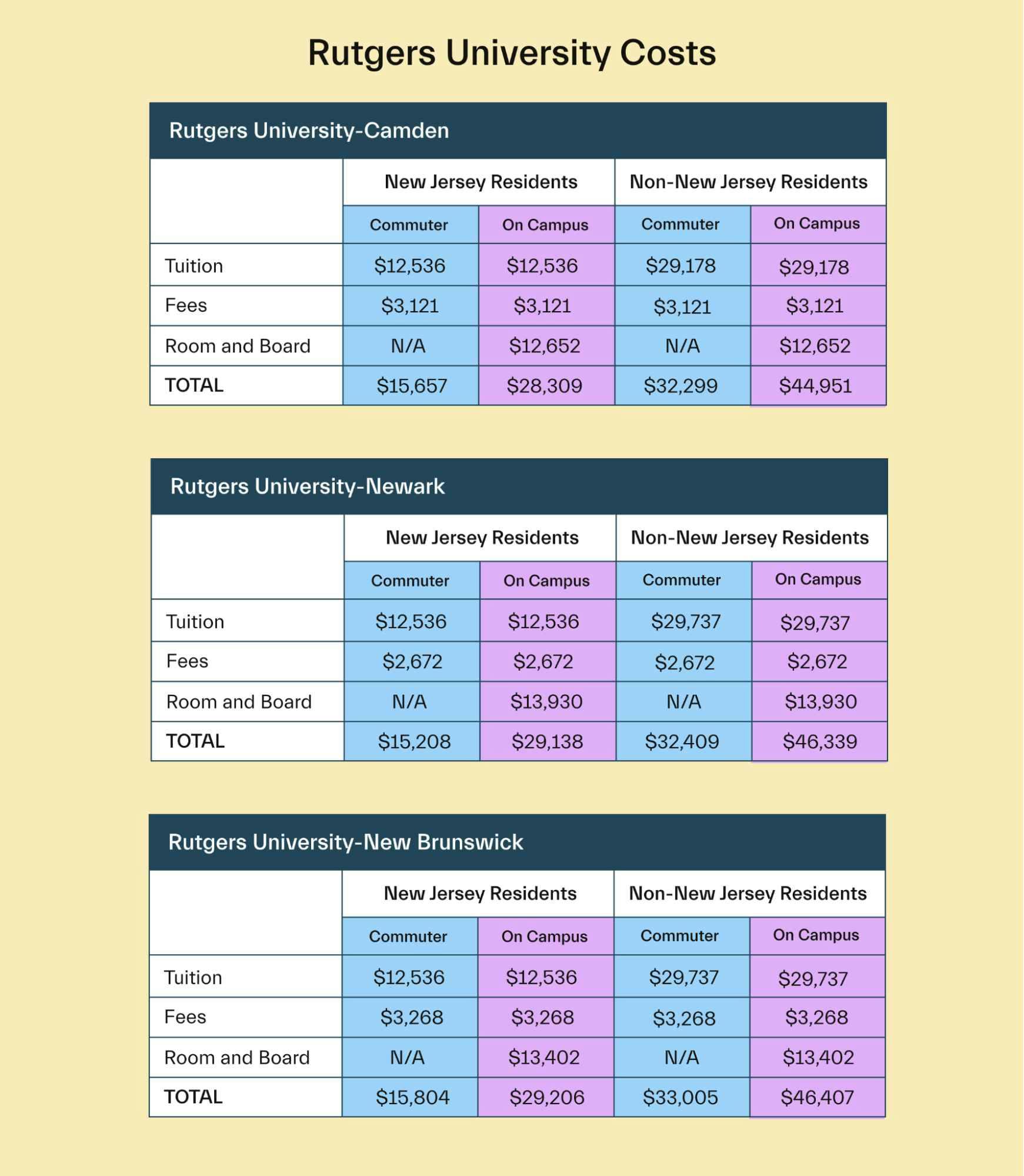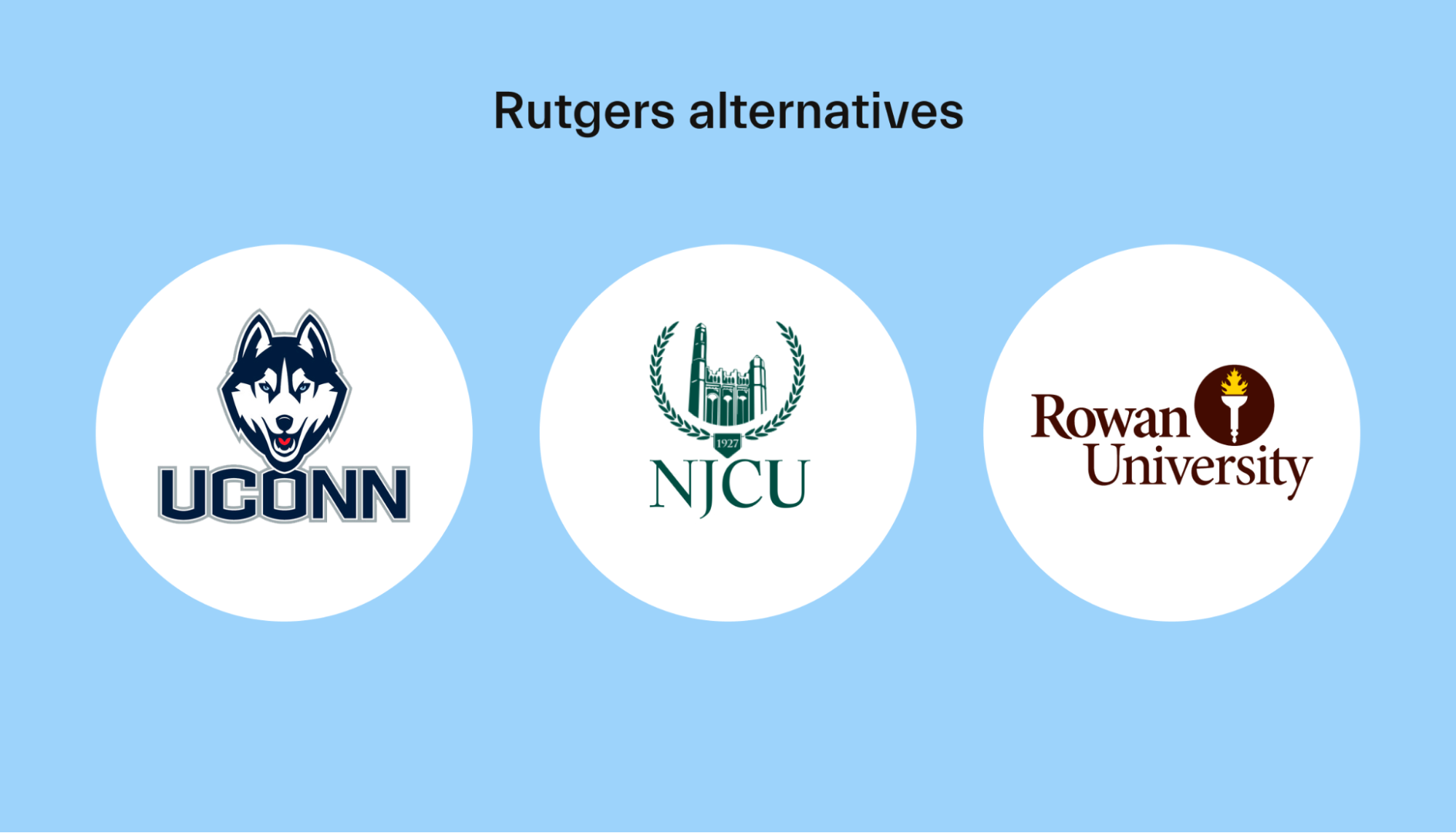Financial aid •
May 6, 2022
Rutgers financial aid: a complete guide
Want to learn about Rutgers financial aid? Check out this guide from Mos.

If you’re considering studying in New England, you can’t do much better than Rutgers University.
But just like every other college in America, the cost of attendance can be a barrier for a lot of aspiring students. Fortunately, Rutgers University offers a range of generous financial aid packages in the form of scholarships, grants, and more.
If you're interested in applying to Rutgers but wondering how you'll pay for it, we've got you covered.
Let's break it all down.
A snapshot look at Rutgers
Founded in 1766, Rutgers is the 8th-oldest college in the US and has been ranked New Jersey’s top public university. Fast-forward to 2022, and Rutgers now plays home to more than 66,000 students from all 50 states and over 130 countries. There are 3 campuses—Newark, New Brunswick, and Camden.
Bearing in mind that Rutgers offers such a wide range of majors, it’s hardly surprising that the school’s staff and students have racked up so many accolades. Rutgers staff and alumni have earned National Medals of Science and Technology, Pulitzer Prizes, MacArthur “Genius” grants, Simons Fellowships, Fulbright Scholarships, and more.
If you’re into sports, the Rutgers Knights compete in the NCAA’s Big Ten conference—and Rutgers is famously known for being the birthplace of college football.
Ranking: 63rd nationally
Size: 50,200
Demographics: 50% male, 50% female
Tuition: $6,268 per semester (in-state), $14,868.50 per semester (out-of-state)
Acceptance rate: 67%
Average GPA of accepted student: 3.7
Key dates and deadlines (2022)
Application: December 1
Financial aid deadlines: December 1
A look at scholarships offered by Rutgers
One thing that really makes Rutgers University stand out is how accessible the school is in terms of financial aid. Rutgers offers a pretty wide range of merit-based and need-based scholarships for incoming undergraduate students.
Rutgers scholarship programs do tend to vary in terms of the number of scholarships available and the award values. But because scholarships don’t have to be repaid, it’s important to note that a scholarship is essentially free money to help you pay for school. That’s why it’s always worth doing your homework to find out which scholarships you may be eligible for.
To give you an idea of what’s on offer, let’s take a quick look at a few of Rutgers’ most popular scholarship programs. Keep in mind that some of these programs are specific to a certain Rutgers campus — so you’ll want to do some further research before applying.
Scarlet Guarantee
If you’re wondering, “How can I go to Rutgers free?” this could be one of your best bets.
Launching for Fall 2022, the Scarlet Guarantee program is a scholarship scheme designed to provide generous financial support for first-year and second-year undergraduate students.
The Scarlet Guarantee program has been set up using 3 funding tiers. These tiers are all based on your family’s adjusted gross income (AGI), which Rutgers will get from your FAFSA or NJAFAA (we’ll get back to these application forms in just a minute).

Eligible Tier 1 (AGI $0–$65,000) students pay $0 for tuition and mandatory fees, beginning with their first semester—which means the Scarlet Guarantee is essentially a need-based, full-ride scholarship.
Tier 2 (AGI $65,001–$80,000) students pay up to $3,000 for tuition and mandatory fees, beginning with their first semester, while Tier 3 (AGI $80,001–$100,000) students pay no more than $5,000 for their respective tuition and fees.
First Scholarship
Rutgers has a merit-based scholarship for high school seniors who have actively competed on a FIRST team at some point during their high school career.
The Rutgers University First Scholarship is a single, merit-based scholarship of $5,000 per year for a full-time undergraduate student. Over the course of 4 years, that works out to a total scholarship of $20,000.
Kevin Apuzzio Endowed Memorial Scholarship
The Kevin Apuzzio Endowed Memorial Scholarship is an award for Rutgers students with emergency services experience. To be eligible, you’ve got to be a student who is an emergency services volunteer at Rutgers or an organization outside Rutgers.
Rutgers September 11th Memorial Scholarship
The Rutgers September 11th Memorial Scholarship program is for students who are the dependent child of a New Jersey resident whose death can be directly attributed to the terrorist attack on the World Trade Center, the Pentagon, or the airplane crash in Pennsylvania on September 11, 2001.
To be eligible, you must be enrolled or accepted to study at Rutgers, The State University of New Jersey.
The financial support this scholarship offers will be made available to any undergraduate college or school at Rutgers’ New Brunswick, Newark, or Camden campuses.
Vincent R. Kramer Scholarship
Rutgers University’s Vincent R. Kramer Scholarship is awarded to one student entering their first year at Rutgers University, New Brunswick.
The award totals $1,766, and the scholarship is for a recipient who can demonstrate outstanding academic achievement and leadership qualities in their community.
You'll be given preference if you're related to a present or past member of the Rutgers Alumni Association (RAA).
Rutgers student loans
A lot of Rutgers students and their families rely on student loans as a way to finance their college education. Luckily, there are quite a few different types of loans available.
In its most basic form, a student loan is just money that you’ve borrowed from a lender so that you can pay for your college tuition immediately. After graduating from school, you must then repay the loan over time with interest.
Interest is the amount your lender charges you for the privilege of getting to borrow cash. If you’re taking out a federal loan backed by the US Government, interest rates are normally fixed.
Federal student loans also come with other useful consumer protections like repayment grace periods, deferred interest accrual, income-based repayment plans, and more.
If that sounds like an opportunity you’d like to explore, all you need to do to apply for a federal student loan is to send in a FAFSA.
Rutgers accepts Stafford Loans, Plus Loans, and Grad Plus Loans. But you can also opt for a private loan if you need to.
Just be careful if you go private. When you take out a private loan, interest rates aren’t always fixed, and repayment terms can be more stringent. For example, some lenders require you to pay interest on your loan before you’ve even graduated.
That’s why most experts recommend you aim for a federal student loan if you’re eligible.
FAFSA
If you’d like to apply for Rutgers financial aid, you’ll be glad to hear the application process is very straightforward. You can apply for most Rutgers financial aid opportunities via the Free Application for Federal Student Aid (FAFSA).
What is the FAFSA?
The FAFSA is the US Department of Education’s universal financial aid application form. Students use the FAFSA to apply for federal grants, federal student loans, and work-study support.
But sending in a FAFSA won’t just secure federal student aid. State governments and Rutgers also use your FAFSA to decide if you’re eligible to get state support or school-specific aid.
Just remember that some Rutgers scholarships will require you to fill out a separate application form, so you’ve got to make sure you understand the application requirements for each scholarship you’d like to apply for.
Don’t stress, because this is where Mos comes in.
For more on applying for FAFSA, including important dates and how to make sure your application is submitted successfully, head to our learning hub.
Rutgers financial aid FAQs
Let’s take a look at some of the most frequently asked questions (FAQs) about Rutgers University’s financial aid.
How much does it cost to attend Rutgers?
The cost of attendance at Rutgers varies based on your major, where you’re from, and the campus you’re studying on.

Generally speaking, most Rutgers campuses charge New Jersey (in-state) residents from $6,268 per semester for full-time students. Tuition fees for out-of-state residents start from $14,868.50 per semester for full-time students.
But just like every other school, there are extra admin fees you’ve got to consider.
For example, domestic students are charged a Student Health Insurance Plan (SHIP) of $9,844 for each fall semester and $1,363 in the spring.
If you’re studying for an online-only degree, you’ll need to pay $577 per credit for most undergraduate courses. Camden School of Business online-only courses cost $564 per credit.
That being said, costs for some university schools and faculties are higher than others.
For example, at Rutgers’ New Jersey Medical School, in-state tuition starts at $43,995 per year in year one. If you’re coming from out-of-state, the tuition rate jumps to $67,885 for your first year. Similarly, Rutgers School of Dental Medicine costs $55,290 per year in year one for in-state students, while out-of-state students pay $89,583 in year one.
For more specific fee information, it’s worth taking a look at the specific major and Rutgers school you’re considering studying with.
How do you apply for Rutgers financial aid?
Most of the grants, scholarships, and loans included as part of a Rutgers financial aid package can be applied for by completing the Free Application for Federal Student Aid (FAFSA).
The FAFSA is a financial aid application form that students use to apply for federal, state, or college financial aid.
You can submit a FAFSA application from October 1—and you can normally apply until June 30 or the end of the academic year (whichever comes first).
The FAFSA is ideal if you’re a US citizen, US national, or US permanent resident. But if you don’t fit into one of these categories, you still have options.
If you’re undocumented, a Deferred Action for Childhood Arrivals (DACA) student, or an NJ Dreamer, you likely won’t be eligible to get federal student aid by completing a FAFSA. But you may still qualify for state-based aid and financial aid from Rutgers itself.
Instead of a FAFSA, you should complete the New Jersey Alternative Financial Aid Application (NJAFAA). This is a similar, state-specific version of the FAFSA.
After you’ve submitted the relevant application form based on your eligibility, you’ll then receive a financial aid offer from Rutgers, which includes all relevant federal loans, grants, and scholarships you’re eligible for.
Does Rutgers offer student grants?
Like scholarships, grants are gift aid that doesn’t need to be repaid. Grants are awarded to students based solely on financial need.
To be considered for any Rutgers grants, you’ll need to complete the FAFSA or the NJAFAA. Rutgers, the state of New Jersey, and the US Federal Government offer the following grants for students attending or planning to attend Rutgers:
Federal Pell Grant
Federal Supplemental Education Opportunity Grant
New Jersey Tuition Aid Grant
New Jersey Educational Opportunity Fund Grant
NJ Stars II
Disadvantaged Student Fund
Universities like Rutgers that you might be interested in
If you’re still not sure whether Rutgers is the perfect college for you, there are other universities in New England worth checking out.

University of Connecticut
The University of Connecticut (UConn) is jointly ranked 63rd in the country alongside Rutgers. Its acceptance rate is slightly lower at 56%, and UConn has a smaller student body.
UConn is located in a fairly rural setting but has a range of well-respected NCAA sports teams and is ranked exceptionally well for its student-life offerings.
New Jersey City University
Founded in 1927, New Jersey City University (NJCU) is a public university based in Jersey City. Although NJCU doesn’t rank as well as Rutgers, New Jersey City has a great acceptance rate and relatively affordable tuition fee rates.
Rowan University
Located in Glassboro, Rowan University is a public research university with an additional medical campus in Stratford, New Jersey.
Rowan University’s acceptance rate is about on par with Rutgers, although its tuition fees are relatively lower.
Conclusion
At the end of the day, Rutgers is a nationally recognized school with a ton of history and a lot of learning opportunities in the form of several different majors.
But if you need help paying to study at Rutgers, Mos is here to help.
We can help you apply for hundreds of scholarships and grants and negotiate for more financial aid. Explore Mos memberships to find the best plan for you.
Let's get
your money
- Get paired with a financial aid expert
- Get more money for school
- Get more time to do you







